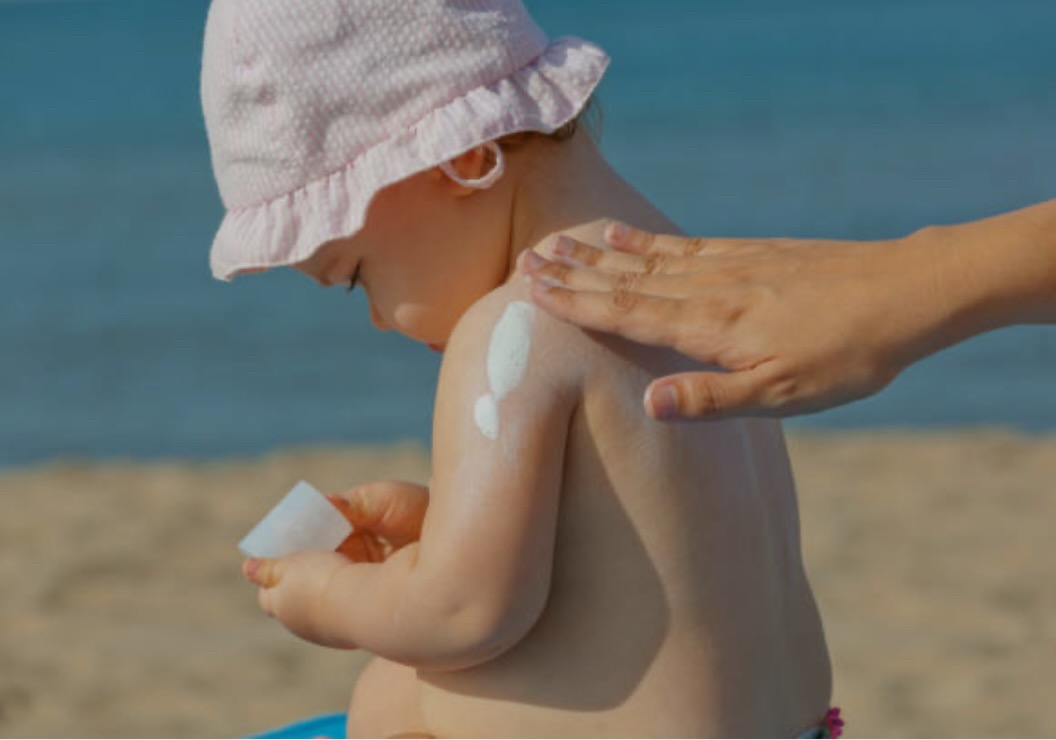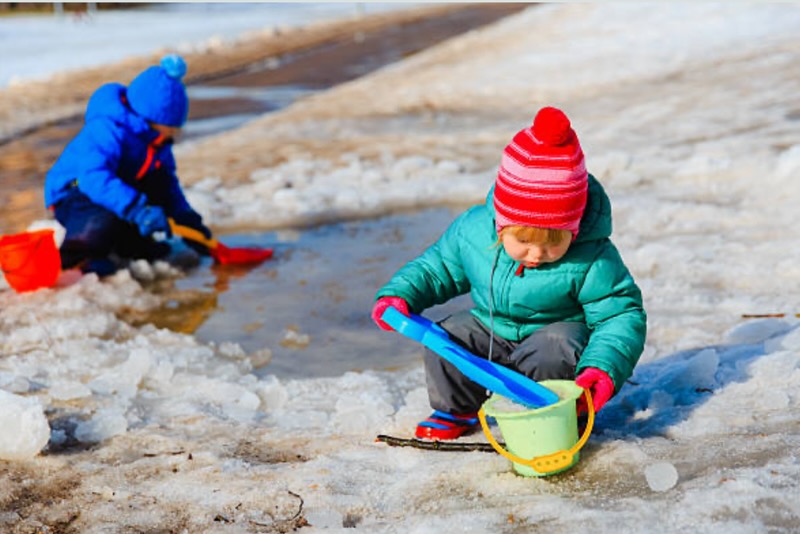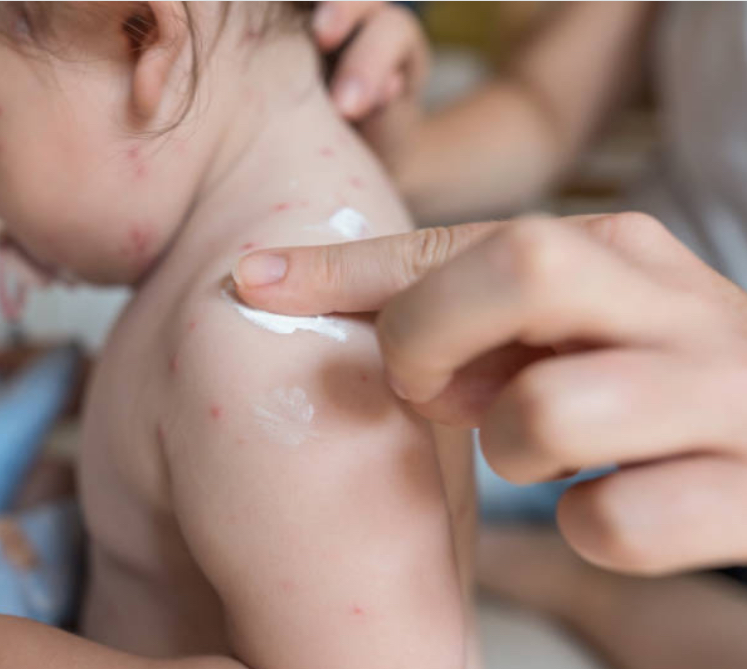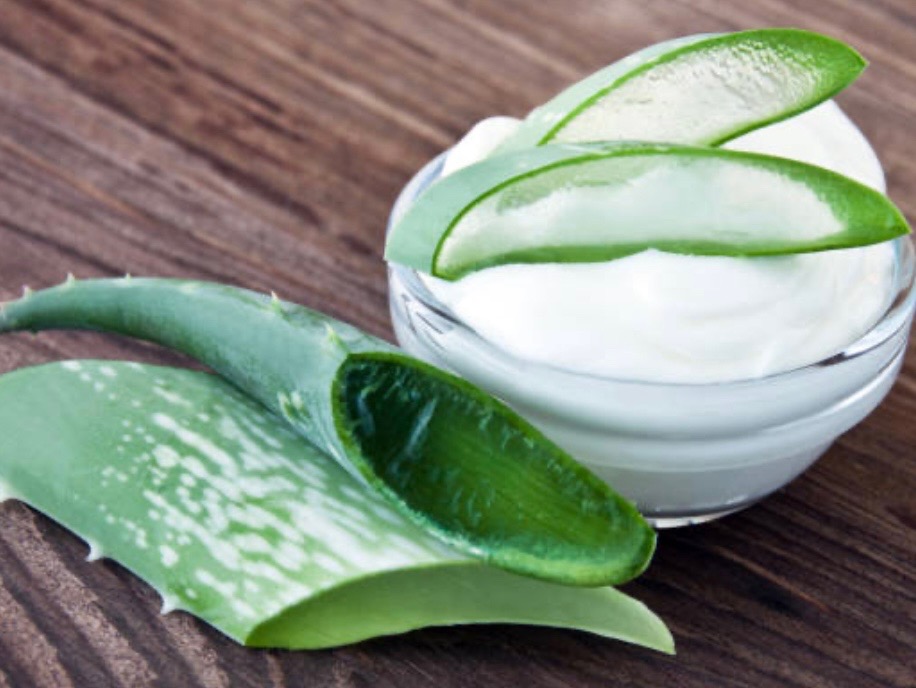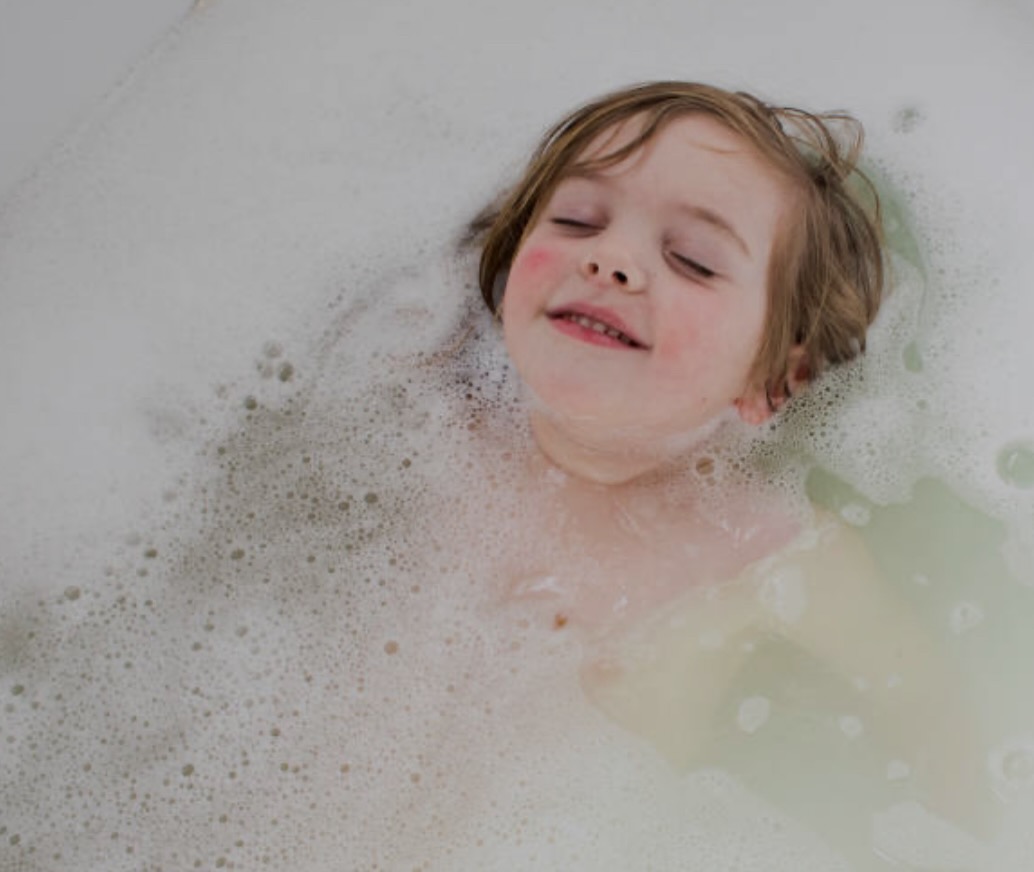Sunscreen helps guard sensitive skin from sunlight, lowering the chance of painful sunburns for kids and babies, keeping the skin healthy and keeping playtimes in the sun safe with gentle sunscreen brands approved by medical experts.
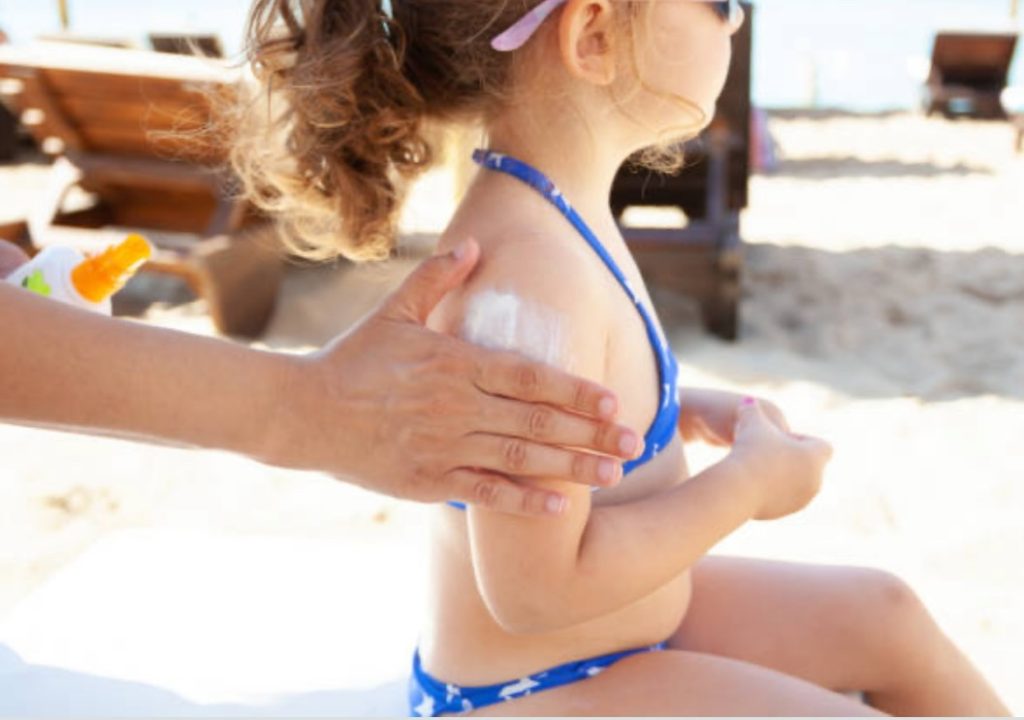
When you’re heading out for a fun day in the sun with your kids or baby, sunscreen might not be the first thing on your mind. But it’s one of the most important tools to keep their delicate skin safe. You might forget about sunscreen if you’re just about to head out with your kids or baby on a sunny day. Even so, it’s necessary to keep their thin skin from being hurt. It may surprise you, but kids and babies should be protected by sunscreen every day. Skin can still become damaged if a child is out for just a little while on a cloudy day or in the shade. Sunscreen is important anytime since it helps both young and adult skin. You shouldn’t just apply sunscreen to avoid the discomfort of a sunburn it safeguards their health over time.
Sunscreen and How Does It Work?
Sunscreen is a cream, lotion, or spray that protects skin from the sun’s ultraviolet (UV) rays. Our skin cares about two types of UV rays to worry about: UVA, which causes skin aging, and UVB, which causes sunburn. Exposure to either can hurt the health of your skin and raise the risk of skin cancer later in life. Chemical sunscreens absorb the sun’s rays, while physical or mineral sunscreens reflect these rays away from the body. Sunscreen works by either absorbing these rays (chemical sunscreens) or reflecting them away from the skin (physical or mineral sunscreens, like those with zinc oxide or titanium dioxide).
For kids and babies, doctors often recommend mineral sunscreens because they’re gentler on sensitive skin. According to a 2020 article in Pediatric Dermatology, mineral sunscreens and provide protection, meaning they block both UVA and UVB rays.
Why is Sunscreen Important for Kids and Babies?
What Doctors Endorse about Using Sunscreen
The American Academy of Pediatrics (AAP) and the Skin Cancer Foundation, along with physicians, advise parents to use sunscreen on children as soon as they become 6 months old. For any babies not yet 6 months, shade and materials that cover their body should be applied, instead of sunscreen. Doctor-Recommended Guidelines:
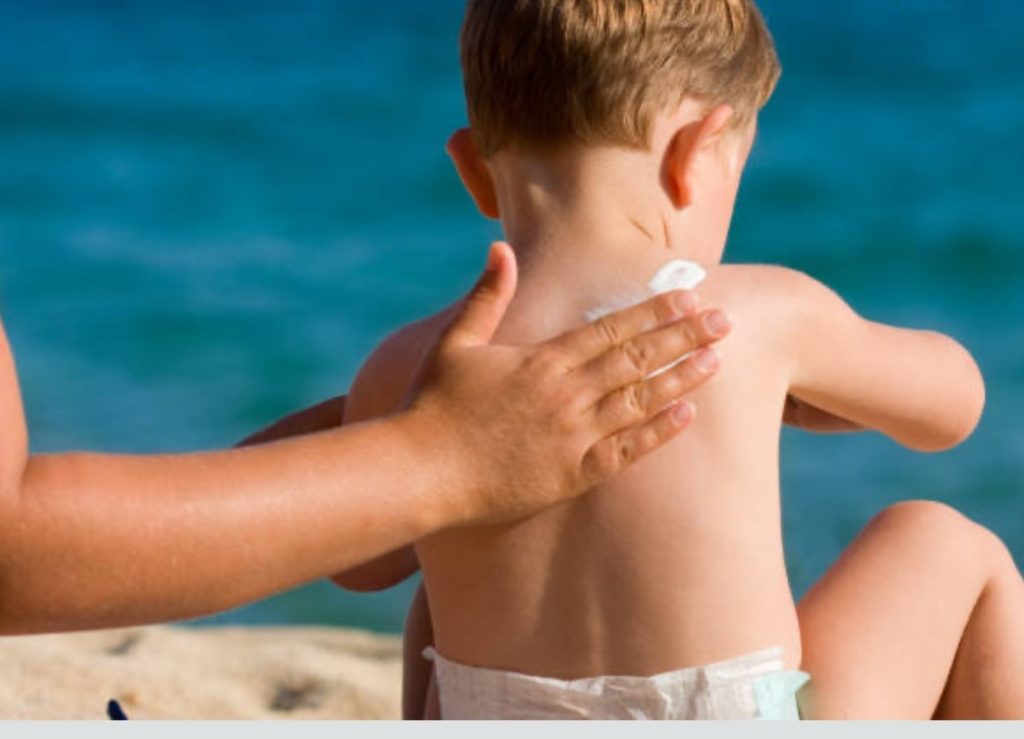
While they are under 6 months old, keep babies away from direct sunlight. Don’t forget to use hats, shade and protective attire. Use sunscreen only when it’s needed in limited areas. Use a sunscreen with SPF 30 or higher on your baby if he or she is 6 months or more. Don’t forget to put on sunscreen around 15 to 30 minutes before you plan to stay outside, regardless of how cloudy it is. If you are swimming or sweating, reapply after every hour.
Avoids Your Skin from Being Exposed to Painful Sunburns
A sunburn causes not just redness and soreness but can also upset kids. In addition, a severe sunburn might result in blisters, a rise in temperature or not enough water in the body. Lisa forgot to put new sunscreen on her little one at the beach and it caused her to be miserable for days. Applying sunscreen before leaving the house avoids sunburns, so playing outdoors is still a good time.
Lowers Long-Term Skin Cancer Risk
Protects the Skin Against Long-Term Skin Cancer Spending too much time in the sun can cause skin cancer and melanoma is the kind that is most likely to be deadly. According to The Skin Cancer Foundation, two or fewer cases of blistering sunburn as a child can double the risk for developing melanoma in adulthood. Applying sunscreen to kids today may reduce their risk of future health problems
Helps Prevent Your Skin from Aging and Becoming Damaged
These rays not only cause cancer but also create wrinkles, dark spots and all the other signs you see when the skin ages. Although your kids might not worry about wrinkles, using sunscreen from a young age will keep their skin healthy over the years. In 2019, Dermatologic Clinics published that using sunscreen every day in kids can prevent most of the early signs caused by UV radiation.
Makes outdoor activities safe as well as fun
Playing outdoors is something kids always enjoy, at the park, along the beach or at home. Apply sunscreen and your kids can enjoy being in the sun safely. Don’t worry, it’s there to take away your parental stress. If you have sunscreen applied, your children can play by the pool or in the sand without being harmed by the sun.
Special Considerations for Babies
Points to Keep in Mind for Babies Before they are 6 months old, babies should avoid being in direct sunlight, according to the AAP. In these cases, choose to dress them with shade, hats and clothing made to keep them cool. If you are outside for a short time, add a thin layer of mineral sunscreen to the parts of your skin that get direct sun such as your face or hands. Babies who are 6 months or older should be protected by sunscreen when playing outdoors.
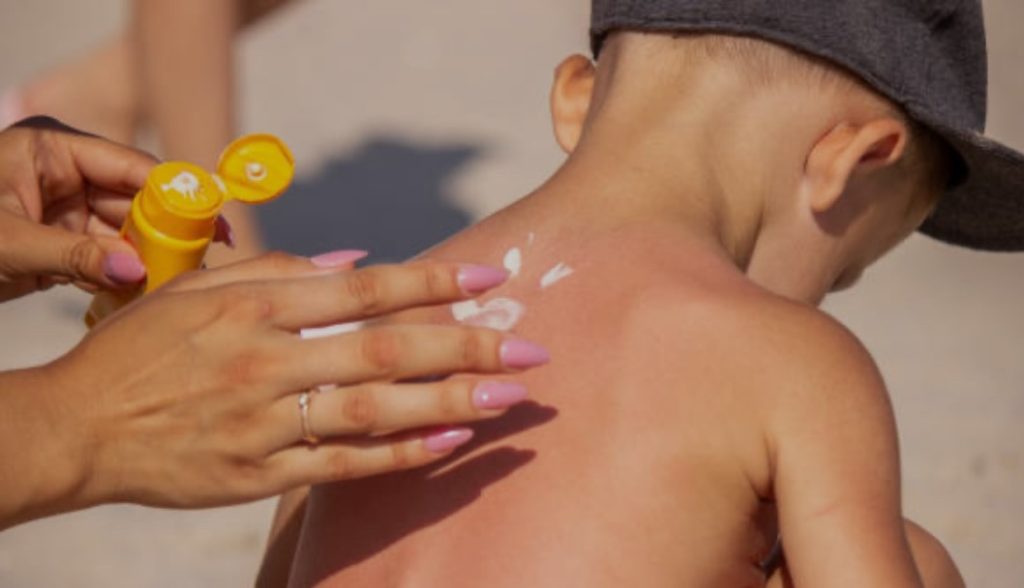
Choosing the Right Sunscreen
Trying to find the right sunscreen for a child or baby can be very confusing. You should watch out for these things, according to experts. Pick a sunscreen that works against UVA and UVB radiation.
Doctors at the AAP believe that most children have sufficient protection against the sun by using SPF 30.
Mineral sunscreens that have zinc oxide or titanium dioxide will be safer for sensitive skin.
Scents or allergens should be avoided in your sunscreen choice. Hypoallergenic treatments are usually safer for your pet’s skin.
If you’re swimming or having sweaty activities, make sure to use a water-resistant sunscreen (it can protect you for up to 40 or 80 minutes).
Kids and baby’s friendly brands include La Roche-Posay Anthelios Dermo-Pediatrics Gentle Lotion SPF 50 best for above 6+ months babiesand kids with sensitive skin, Neutrogena Pure & Free Baby, innisfree , Aveeno
Always examine the label for statements such as “pediatrician-tested” or “dermatologist-recommended,” just to be certain it’s safe.
The proper Way to Use Sunscreen
To get the most from sunscreen, it needs to be applied correctly. This guide will walk you through step by step:
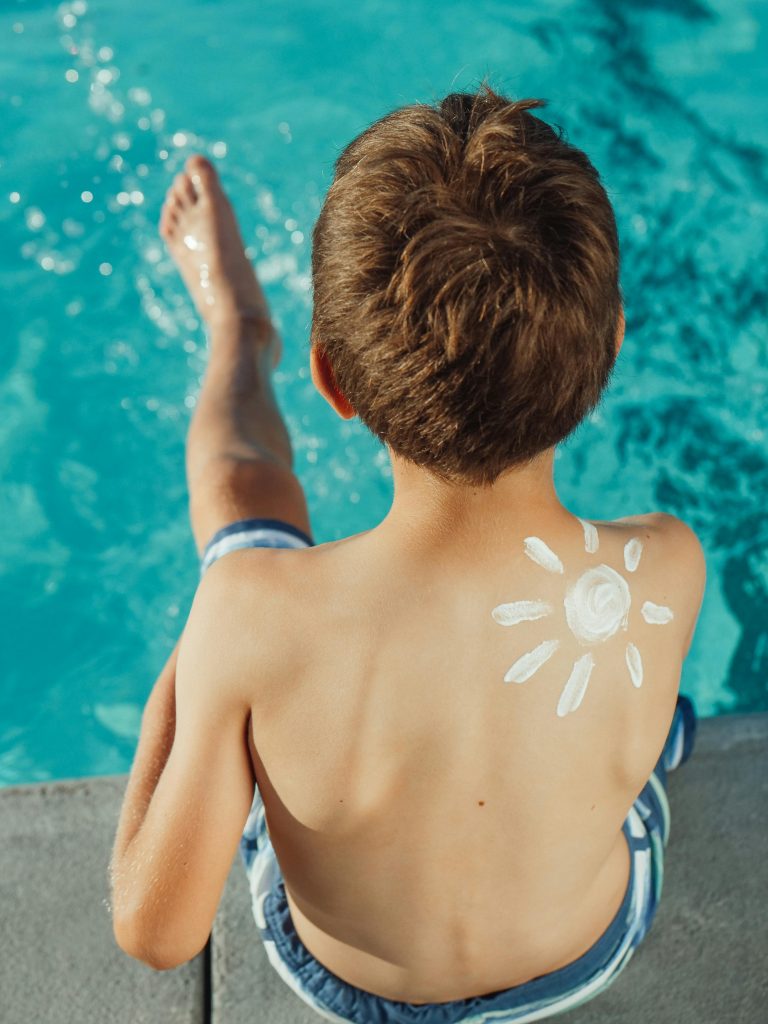
Use approximately 1 ounce (a shot glass full) of medicine for each child receiving it.
Babies can have a smoother application outside the diaper. Do not try to save money on protection it won’t work well. Remember to apply sunscreen 15–30 minutes before you head out in the sun.
Keep On Top of It: Put on reapplying sunscreen after 2 hours or as soon as you get wet or start to sweat. Labels tell you when to reapply water-resistant sunscreen, so be sure to still apply it as directed.
Remember to cover your ears, neck, feet and the backs of your hands. Choose a lip balm with sun protection for your lips. Combining sunscreen with a hat, sunglasses and clothing with UPF helps give the best protection.
Things You Should Not Do
Even if it’s overcast, because UV can still reach you, it’s important to use sunscreen.
Outdated Sunscreen: Read the expiration date; sunscreen that is out of date is less reliable.
Only using Sunscreen: Protect yourself better by using shade and covered clothing.
Know that some adult sunscreens contain harsh chemicals, so should not be used on babies.
Choose personal care products that say they are safe for babies or children.
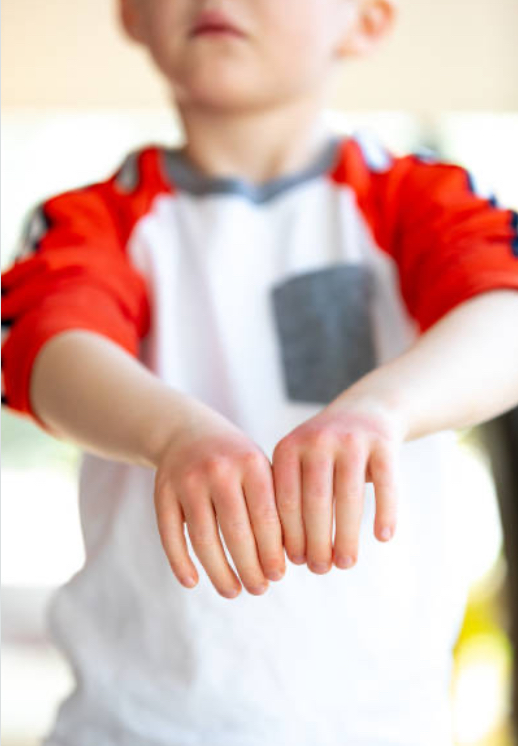
When to see a doctor
Most sunburn can be treated at home with cool compresses, aloe vera, but see a doctor if
The sunburn has blisters, severe swelling.
There’s a rash, itching or other signs of an allergic reaction to the sunscreen.
Adding sunscreen to your Baby’s skin is a good way to protect them from the damaging effects of the sun. It stops severe sunburn, lowers the risk of developing cancer and looks after their sensitive skin. Proper use of the right sunscreen ensures your children have safe fun outside and healthy skin for many years. Your doctor might remind you that practicing sun safety from the start is worthwhile. Using sunscreen regularly on kids was found in a 2021 Pediatrics study to reduce UV exposure by up to 60%. Always apply sunscreen to both your children and yourself before sunbathing peacefully.
Please note :This material and the content and information in it contains are not intended to, and do not constitute, medical or other health advice or diagnosis and should not be used as such. Consult an experienced doctor or healthcare provider for some of the issues in your individual situation.
